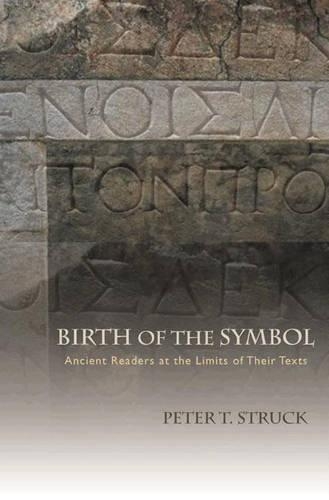
Birth of the Symbol: Ancient Readers at the Limits of Their Texts
(Hardback)
Available Formats
Publishing Details
Birth of the Symbol: Ancient Readers at the Limits of Their Texts
By (Author) Peter Struck
Princeton University Press
Princeton University Press
5th July 2004
United States
Classifications
Tertiary Education
Non Fiction
Literary studies: ancient, classical and medieval
881.0915
Physical Properties
Hardback
312
Width 152mm, Height 235mm
624g
Description
Nearly all of us have studied poetry and been taught to look for the symbolic as well as literal meaning of the text. Is this the way the ancients saw poetry In Birth of the Symbol, Peter Struck explores the ancient Greek literary critics and theorists who invented the idea of the poetic "symbol." The book notes that Aristotle and his followers did not discuss the use of poetic symbolism. Rather, a different group of Greek thinkers--the allegorists--were the first to develop the notion. Struck extensively revisits the work of the great allegorists, which has been underappreciated. He links their interest in symbolism to the importance of divination and magic in ancient times, and he demonstrates how important symbolism became when they thought about religion and philosophy. "They see the whole of great poetic language as deeply figurative," he writes, "with the potential always, even in the most mundane details, to be freighted with hidden messages." Birth of the Symbol offers a new understanding of the role of poetry in the life of ideas in ancient Greece.Moreover, it demonstrates a connection between the way we understand poetry and the way it was understood by important thinkers in ancient times.
Reviews
Winner of the 2007 Charles J. Goodwin Award of Merit "A rich and fascinating account of how the ideas of symbolism and allegorical reading developed over the course of classical antiquity. It is a remarkable achievement."--David Konstan, Literary Imagination "This book offers a remarkably comprehensive study of ancient symbolic interpretation from the Pre-Socratics to the later Neoplatonists and beyond."--Derek Collins, Classical World
Author Bio
Peter T. Struck is Assistant Professor of Classics at the University of Pennsylvania. He was a fellow at the National Humanities Center.
